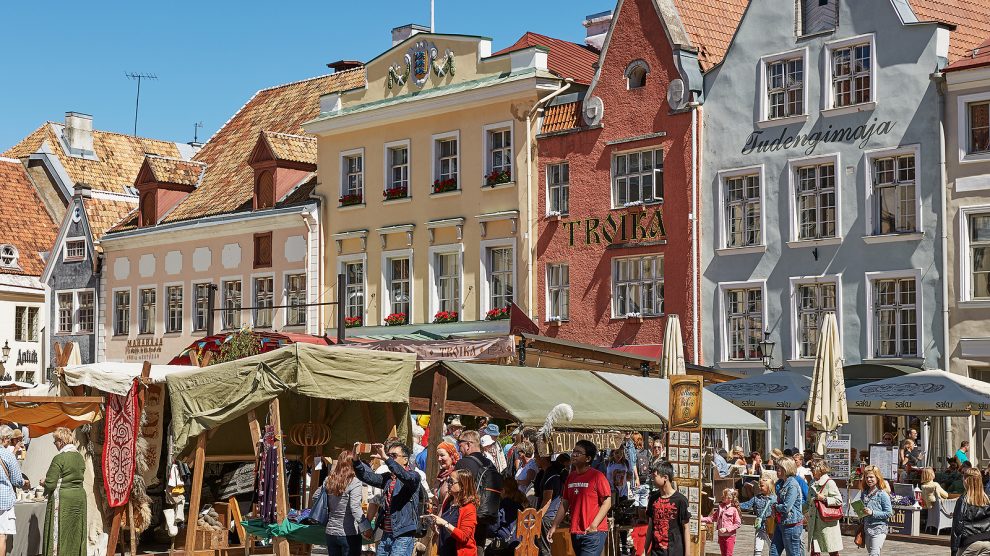Double-digit inflation and labour shortages are slowing the pace of Estonia’s initially robust rebound from the Covid-19 crisis.
A renewed focus on structural reforms would help drive stronger growth and sustain living standards in Estonia as rising inflation, exacerbated by Russia’s war of aggression against Ukraine has harmed its economic recovery and risks undermining its efforts to reduce poverty, according to a new survey of the country’s economy by the Organisation for Economic Co-operation and Development (OECD).
The latest OECD Economic Survey of Estonia sets out that double-digit inflation and labour shortages are slowing the pace of Estonia’s initially robust rebound from the Covid-19 crisis.
- Estonia tops Emerging Europe’s investment promotion survey
- Inflation now ‘a clear and present danger’ with all three Baltic states set for double-digit price growth in 2022
- Estonia, once again emerging Europe’s press freedom champion
Headline inflation stood at 20 per cent year-on-year in May, with core inflation at nine per cent. Policy measures to better target social transfers to the most vulnerable, making use of Estonia’s highly advanced digital capacity, would help achieve the government’s important objective to reduce relative poverty from 21 per cent in 2020 to 15 per cent by 2023.
“Estonia’s economy rebounded strongly last year, after weathering the pandemic better than peer countries,” says OECD Secretary-General Mathias Cormann.
“Now, the economic impact of Russia’s war against Ukraine is hurting growth, fanning inflation and heightening poverty challenges. This makes structural reforms to reduce labour shortages, protecting labour market flexibility and addressing skills mismatches even more important and more pressing.”
Estonia has made remarkable economic progress since independence in 1991, tripling per capita income over 30 years and steadily narrowing the income gap with advanced economies.
Estonia enjoys solid institutions, strong public finances, high educational outcomes, a flexible job market, business-friendly regulations and world-class digital governance and innovation. At the same time, Estonia’s cost competitiveness was decreasing even before the pandemic and could fall further if labour market shortages cause wages to grow faster than productivity.
Slowing growth
The survey projects Estonia’s GDP growth at 1.3 per cent in 2022 and 1.8 per cent in 2023 after growth of 8.2 per cent in 2021, as high inflation weighs on household purchasing power.
Savings accumulated by consumers during the pandemic and the absorption of EU recovery funds will help support economic activity.
As well as making social transfers more effective and better targeted, the survey recommends reducing employee social security contributions for low-wage earners, notably for young workers, to ease pressure on incomes.
The survey also calls for additional action to reduce the gender pay gap, which remains significant despite impressive progress in recent years. This would help support vulnerable women such as single mothers, as well as raise work incentives for women.
Tax reform
Tax reforms meanwhile could help Estonia to prepare for future challenges such as population ageing, which will increase health and pension spending.
They would also help in addressing climate change, where carbon emission reductions and climate adaptation will require public investment. One option to increase tax revenues is to review the taxation of dividends, which is among the lowest in the OECD.
Another option is to look at whether the review of land valuation under way in Estonia is an opportunity to also evaluate the stock of housing and business properties and potentially expand the property tax base beyond land.
Estonia’s prime minister, Kaja Kallas, who has emerged as a key leader in the West’s economic and military response to Russia’s invasion of Ukraine, is currently fighting for her domestic political future after the two-party coalition led by her centre-right Reform party fell apart in early June when she kicked out junior partner, the Centre party, following disputes over welfare and spending issues amid the alarming rise in inflation.
Unlike many news and information platforms, Emerging Europe is free to read, and always will be. There is no paywall here. We are independent, not affiliated with nor representing any political party or business organisation. We want the very best for emerging Europe, nothing more, nothing less. Your support will help us continue to spread the word about this amazing region.
You can contribute here. Thank you.



